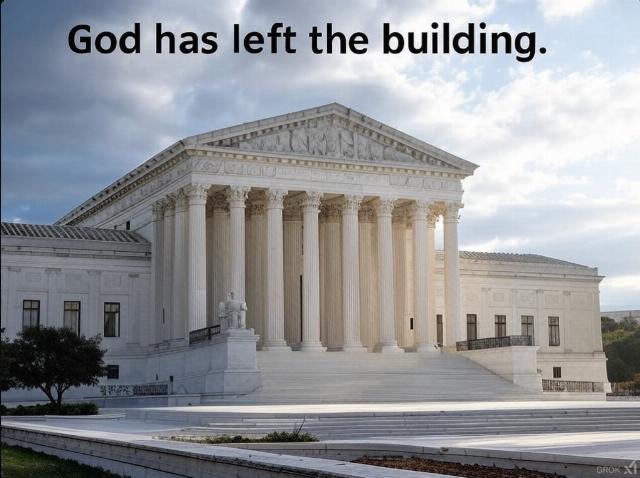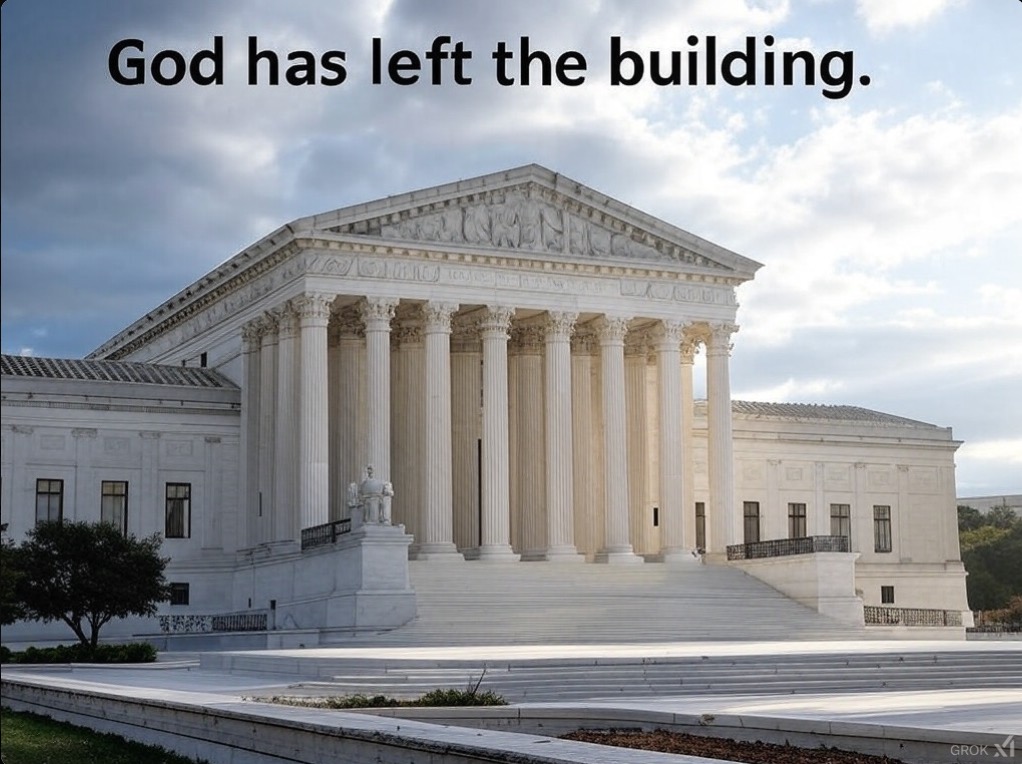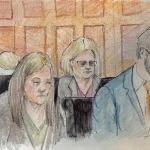

Grok
This error must be addressed because the Court has unconstitutionally established a secular or materialistic ideology as our national belief system.The people of the United States established its Constitution to secure the blessings of liberty and then amended it to bar Congress from making laws establishing religion or prohibiting its free exercise. Unfortunately, our courts have distorted the meaning of these provisions to effectively establish a secular or materialistic ideology as our national belief system.
The Supreme Court, in Lemon v. Kurtzman (1971), held that, under the Establishment Clause, government action must have a secular purpose and not have a primary effect that advances or inhibits religion. However, in The American Legion v. American Humanist Association (2019), it partially backed away from Lemon, holding that the Establishment Clause must be interpreted with reference to historical practices and understandings.
It is now considered axiomatic that when our government acts, its purposes must be purely secular. Such purposes, it would follow, must be formed without reference to God. And yet, we regularly allude to God in the context of government, whether with our pledge to one nation under God or with the words “in God we trust” on our currency.
Regarding our religious jurisprudence, we are a schizophrenic nation, attempting to straddle a polar divide. Is this what the historical understandings of the words used in our Constitution call us to?
<img alt captext="Grok” src=”https://conservativenewsbriefing.com/wp-content/uploads/2025/02/modern-supreme-court-doctrine-has-subverted-the-constitutional-meaning-of-religion.jpg” width=”550″>
Image by Grok.
The Supreme Court has repeatedly held that the words in the Constitution and statutes must be interpreted in accordance with their ordinary public meaning at the time of enactment, not obscure or technical meanings. This is because the consent of the governed is an essential element of our polity, and people can’t consent to laws unless they understand what they mean. Contemporaneous dictionaries are commonly used to prove such ordinary public meanings. At the time of the First Amendment, the dictionary in use was Samuel Johnson’s A Dictionary of the English Language, upon which the Supreme Court routinely relies.
Johnson defines religion as “virtue [moral goodness] as founded upon reverence of God [Supreme Being].” He defines secular as “not spiritual; relating to the affairs of the present world,” and spiritual as “distinct from matter; immaterial.”
These definitions draw a line between the religious and the secular: an understanding of right and wrong based on God versus one based on the material or the worldly. This definition of religion comports with the definition suggested in U.S. v. Seeger (1965) and Welsh v. U.S. (1970), which addressed conscientious objector religious exemptions during the Vietnam War era.
Welsh, following Seeger, held that “[w]hat is necessary…for a [belief] to be religious…is that this [belief] stem from…beliefs about what is right or wrong…” Welsh explained that “[m]ost of the great religions of today and of the past have embodied the idea of a Supreme Being or a Supreme Reality—a God—who communicates to man in some way a consciousness of what is right and should be done, of what is wrong and therefore should be shunned.”
Seeger and Welsh drew a line between the religious and the secular by denying religious exemptions to those whose moral code “is in no way related to a Supreme Being.” This concept was shortly thereafter echoed in Wisconsin v. Yoder (1972), which precluded a religious exemption “if it is based on purely secular considerations.”
This line between the religious and the secular is crucial to understanding the Lemon requirement that our laws must have a secular purpose not directly related to religion. It effectively means that our laws must be primarily based on materialism and not an understanding of right and wrong somehow communicated by God.
Unfortunately, materialism cannot supply a basis for right and wrong action because it holds that reality is simply a process of physical cause and effect. There is no room in that theory for a concept of self-volition or the categories of right and wrong action.
Nonetheless, the Lemon case requires that governmental action be based on secular and, therefore, materialistic purposes. This concept has had a profound effect on our culture, given how the scope of government’s action has dramatically expanded over the last century. It requires that virtually everything within the scope or influence of government activity be devoted to a secular or materialist purpose. This amounts to the establishment of a materialist belief system, which lacks a logical foundation for guidance regarding the difference between right and wrong action.
American Legion has only marginally backed away from the Lemon test by allowing long-standing government monuments or practices reflecting theistic heritage on the grounds that historical usage diluted their religious content, thereby treating the idea of God as a historical vestige.
However, American Legion is helpful in that it embraces the concept that the Establishment Clause should be interpreted in accordance with historical understandings. It falls short because it does not correctly apply those historical understandings as reflected in Johnson’s dictionary and the Seeger and Welsh cases.
One historical understanding is that government should not be used to establish specific forms of religious beliefs or practices. This worthy goal has been iconically characterized by Thomas Jefferson as a wall of separation between church and state. However, this approach has been improperly extended to set up a wall of separation between God and state. Such a result is not only contrary to the words of the Constitution but also to what is logically necessary for a coherent social order.
The First Amendment prohibits Congress from fixing religious doctrine and practice. This must be understood in the context that the people have established a government to secure God’s blessings of liberty. That is, the government may function within the powers granted but may not otherwise fix religious doctrine and practice.
I say “otherwise fix religious doctrine” because the Constitution itself was based on a set of beliefs. Those beliefs include the idea that God endowed each of us with the right of liberty, to live our lives as we see fit, within the context of a government established to protect this right. Such a belief is itself a form of religion within the meaning of Johnson’s dictionary and the ordinary public understanding at the time of the Constitution.
The First Amendment does not prohibit the government from functioning within the context of belief in God to the extent of exercising its limited powers. A contrary reading would result in the nullification of the stated purpose of the Constitution, a manifest absurdity. Nonetheless, to the extent that government actors derive that understanding from God, it would be fixing a religious belief and practice.
This conundrum may be resolved by reflecting on the Constitutional context of the First Amendment. The people have established a government of limited powers to be exercised by Congress and the executive and judicial branches. This was an exercise of the plenary authority that the people assumed to establish a government. Importantly, however, the people did not grant such plenary authority to Congress, the instrument they established to wield legislative authority.
The First Amendment accepts the existence of Congress along with its limited powers as its premise when it prohibits Congress from establishing religion. Government may function within the scope of these limited powers, even though they are ultimately based on belief in God because the people have so agreed in the Constitution. It is not plausible to read the First Amendment as having nullified this foundational principle.





